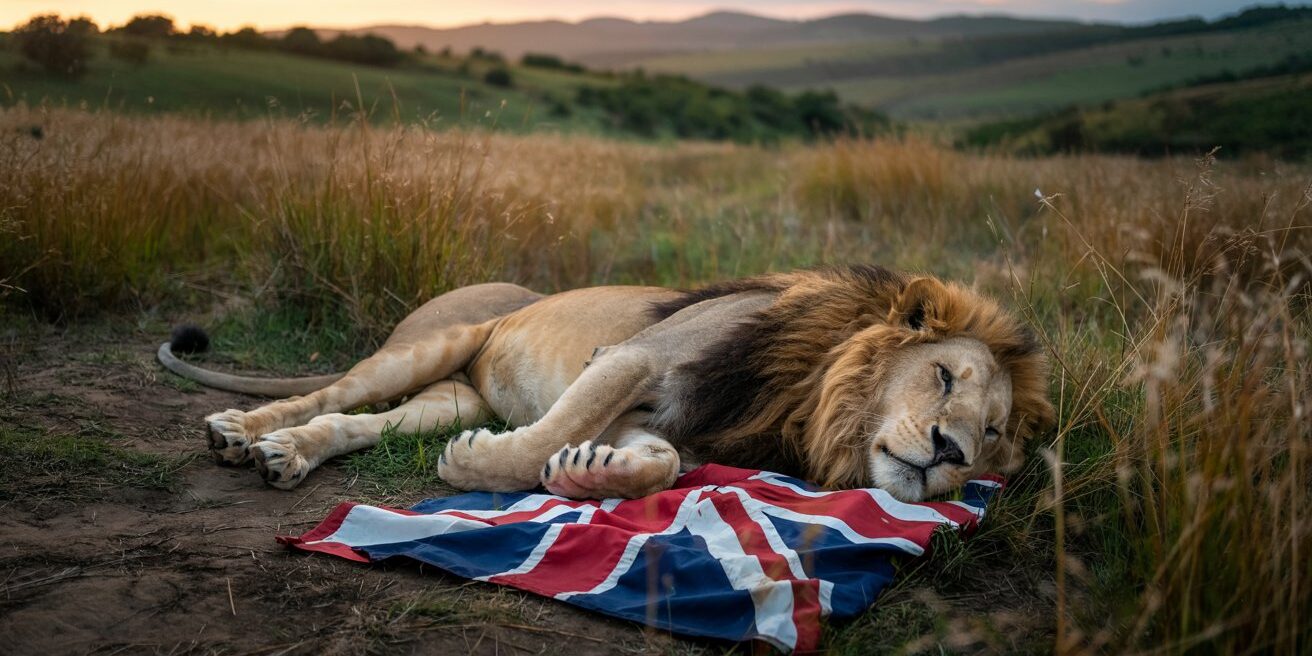
Is Nationalism the New British Ideology?
There is a curious irony in today’s Britain. We were a nation that once commanded a quarter of the globe but now squabble over its borders. Depending on which section of the electorate you speak to, there is a growing sense that the United Kingdom is under siege. Some would say the siege comes from without, with thousands of migrants illegally crossing the sea to our shores. Whilst others would say the siege is from within; Scotland endlessly toys with separation but finds itself blocked by Parliament from maverickly holding another referendum; Wales rumbles with nationalist fervour, with Plaid Cymru stirring up sentiment of a left-behind country that should take back control; Northern Ireland contemplates a constitutional recalibration, with recent headlines stating that the “gap between a United Ireland and Northern Ireland remaining in the United Kingdom has narrowed in the last year”; England, evidently, remains in control and ever the slumbering giant. Too weary or arguably too guilty to throw its weight around.
We cannot ignore that Nationalism is back on the agenda, high up on the list of matters to consider by governments in the West. This resurgence is not new. It is history repeating itself, albeit with new flags, slogans, and hashtags. Trump is leading the march with his ‘America First’ mantra, oxymoronically pushing for tighter border controls whilst simultaneously wishing to annex Canada, Greenland and even suggestions of the U.K. But it’s not just America that is peddling Nationalistic fervour. In Germany, the AfD Party, whose beliefs lie in Germany first, came second in their recent election, the best performance by a centre-right party since World War Two. The Italian Brothers of Italy Party, led by Georgia Meloni, equally champion Nationalist notions that have won them many allies across Europe and America. Viktor Orbán, of the Hungarian Fidesz political party, remains the contentious Scholar on European Nationalism. And in the backdrop of the war in Ukraine, Putin’s nationalism invokes Tsarist and Soviet glory, sold as a defence of historical destiny.
With the various movements towards nationalistic thinking, we in Britain should take stock in what truly could threaten our Union. To do this we must look back in our history, to before devolution, before Thatcher, before even the Act of Union, to the fundamental idea of Britain itself.
The Together U.K. Board have often debated the meaning of being British as the gateway to why the Union must prevail. Interestingly, we find the answer is convoluted. Generally, our thoughts have steered towards such areas as trade, defence, Law, shared heritage and the English language. We think that these shared beliefs alone should stand as positive aspects to remain united.
But perhaps there is some ignorance in our thinking. We forget that history tells us the formation of the Union was never a romantic union of equals. It was formed for pragmatic, strategic reasons and was fundamentally necessary: After centuries of war with its Celtic neighbours, England realised that their inclusion was a perennial solution than the obsessive pursuit to dominate them. The 1707 Act of Union with Scotland was therefore not born out of love but out of survival. Scotland was bankrupt, England faced threats from France, both countries needed security. Ireland had a slightly different trajectory. It had seen centuries of British Rule with varying degrees of English, later British, control: The Act of Union 1800 abolished the Irish Parliament, which many Irish saw as loss of autonomy: The Great Famine killed about a million people and forced mass emigration, deepening resentment to Britain; economic policies favouring British interests left Ireland underdeveloped, fuelling nationalist sentiment. The culminating Irish War of Independence led Unionists to decide, however, that the continued union with Britain safeguarded their religious, cultural, and economic interests. And so, the marriage we co-exist in today was an arranged one, not based on the love of being United but based on the necessity of shared interests; more civic, less ethnic.
In 2027 we will mark 100 years since the name The United Kingdom of Great Britain and Northern Ireland, was cemented in law, reflecting the new reality of Northern Ireland remaining within the United Kingdom. For all its faults, it remains one of history’s great political creations. If we are to keep this kingdom united, we must stop apologising for its existence. We must teach its history, not as a tale of oppression, but of complexity and compromise. We must remind the Scottish, Welsh, Irish, and English alike, that unity is not a shackle, but a shield. It is a healthy patriotism that values democracy, history and shared purpose. The challenge for us all, and the task of Together UK and its members, is not to denounce nationalism but to ensure we channel this new ideology responsibly.
Oni Oviri, Chair of TUKF’s Board of Advisors

